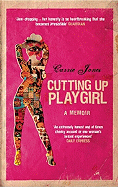
 First published in England, this book's original subtitle was "A Memoir of Sexual Disappointment" and due to its indelicate subject matter, the author, "a successful publishing executive," writes under the pseudonym Carrie Jones in order to protect her anonymity. Yet, in an age of porn star, fetish and sex-worker memoirs, Jones's tale of sexual misadventure (beginning with a mundanely detailed list of the 23 men she's slept with) seems puzzlingly un-shocking. Jones herself seems to understand that her sexual confessions are neither salacious nor extraordinary. Why then, one wonders, does she go to the trouble at all? Jones answers this question almost despite herself; for in endlessly speculating on the psychological underpinnings of her own frustration and disappointment, she describes a state of mind that many women will find all too familiar.
First published in England, this book's original subtitle was "A Memoir of Sexual Disappointment" and due to its indelicate subject matter, the author, "a successful publishing executive," writes under the pseudonym Carrie Jones in order to protect her anonymity. Yet, in an age of porn star, fetish and sex-worker memoirs, Jones's tale of sexual misadventure (beginning with a mundanely detailed list of the 23 men she's slept with) seems puzzlingly un-shocking. Jones herself seems to understand that her sexual confessions are neither salacious nor extraordinary. Why then, one wonders, does she go to the trouble at all? Jones answers this question almost despite herself; for in endlessly speculating on the psychological underpinnings of her own frustration and disappointment, she describes a state of mind that many women will find all too familiar.
Jones, now 47, had a conventional and (it must be said) very British upbringing as the only child of parents who remained in their cheerless, loveless marriage for several decades too long and to which Jones ascribes plenty of Freudian blame for her own sense of shame and inhibition about sex. It's a persuasive argument, despite the fact that even girls with loving parents have secret crushes, fantasies and curiosity about pornography. However, when Jones goes beyond her adolescence and describes her first sexual encounters as a student at Cambridge, there emerges a more universal explanation for what ended up becoming a lifetime of sexual dissatisfaction. "Sexual politics was a major plank of the Left then," she writes, "and it was necessary to have one's relationship running in an acceptable way--in theory a very good thing for women but in practice tending to render sex a little joyless, if respectful." Jones continued to have such polite, joyless sex throughout her 20s and into her 30s when the "ceaseless cacophony of voices, in the media, in books, banging on about being utterly fulfilled by sex" created an even wider gulf between her expectations and her reality. That there is no there there becomes painfully obvious toward the end of the book when the now-married Jones begins an Internet affair with her very first boyfriend, hastening the end of her already unraveling marriage and leaving herself emptier than before.
It's a sad ending, but not without hope. Reviewing her own history and in the process gaining a broader view of the forces that shaped it, Jones concludes that "the only answer is to live in the light" and that "Love may come, even to the weird."--Debra Ginsberg
Shelf Talker: A candid and thought-provoking account of one woman's sexual history that is universal in its ordinariness.

